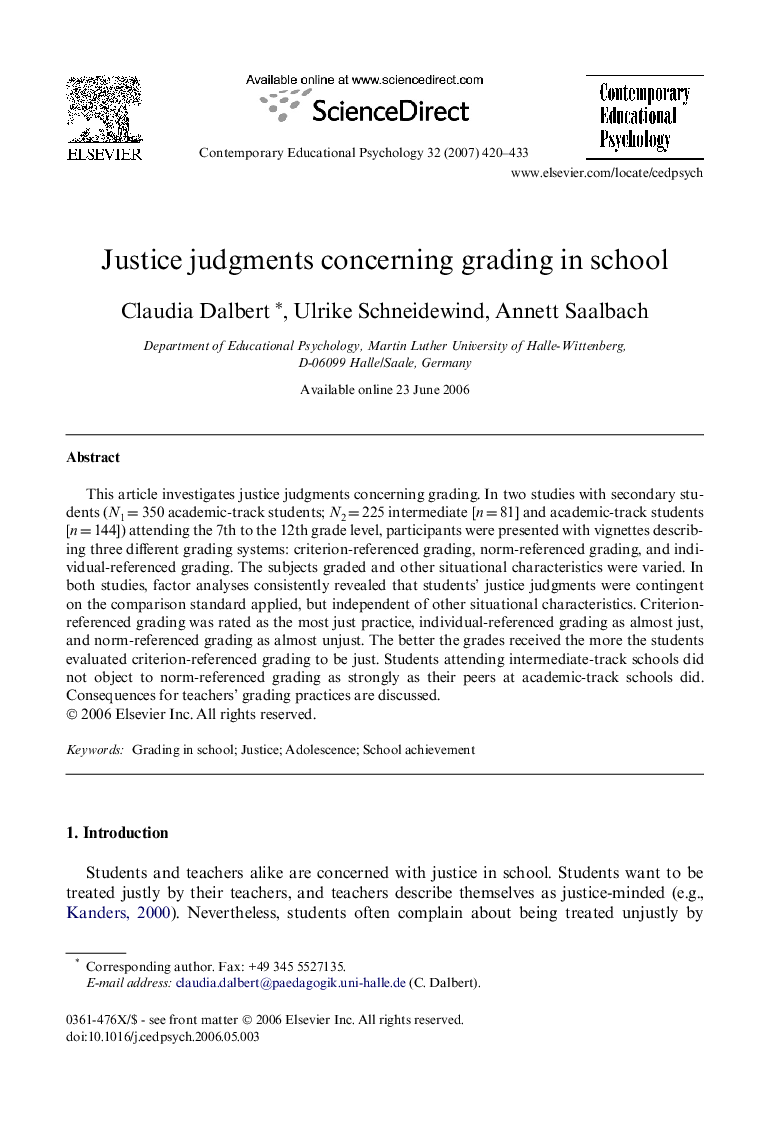| Article ID | Journal | Published Year | Pages | File Type |
|---|---|---|---|---|
| 352858 | Contemporary Educational Psychology | 2007 | 14 Pages |
This article investigates justice judgments concerning grading. In two studies with secondary students (N1 = 350 academic-track students; N2 = 225 intermediate [n = 81] and academic-track students [n = 144]) attending the 7th to the 12th grade level, participants were presented with vignettes describing three different grading systems: criterion-referenced grading, norm-referenced grading, and individual-referenced grading. The subjects graded and other situational characteristics were varied. In both studies, factor analyses consistently revealed that students’ justice judgments were contingent on the comparison standard applied, but independent of other situational characteristics. Criterion-referenced grading was rated as the most just practice, individual-referenced grading as almost just, and norm-referenced grading as almost unjust. The better the grades received the more the students evaluated criterion-referenced grading to be just. Students attending intermediate-track schools did not object to norm-referenced grading as strongly as their peers at academic-track schools did. Consequences for teachers’ grading practices are discussed.
